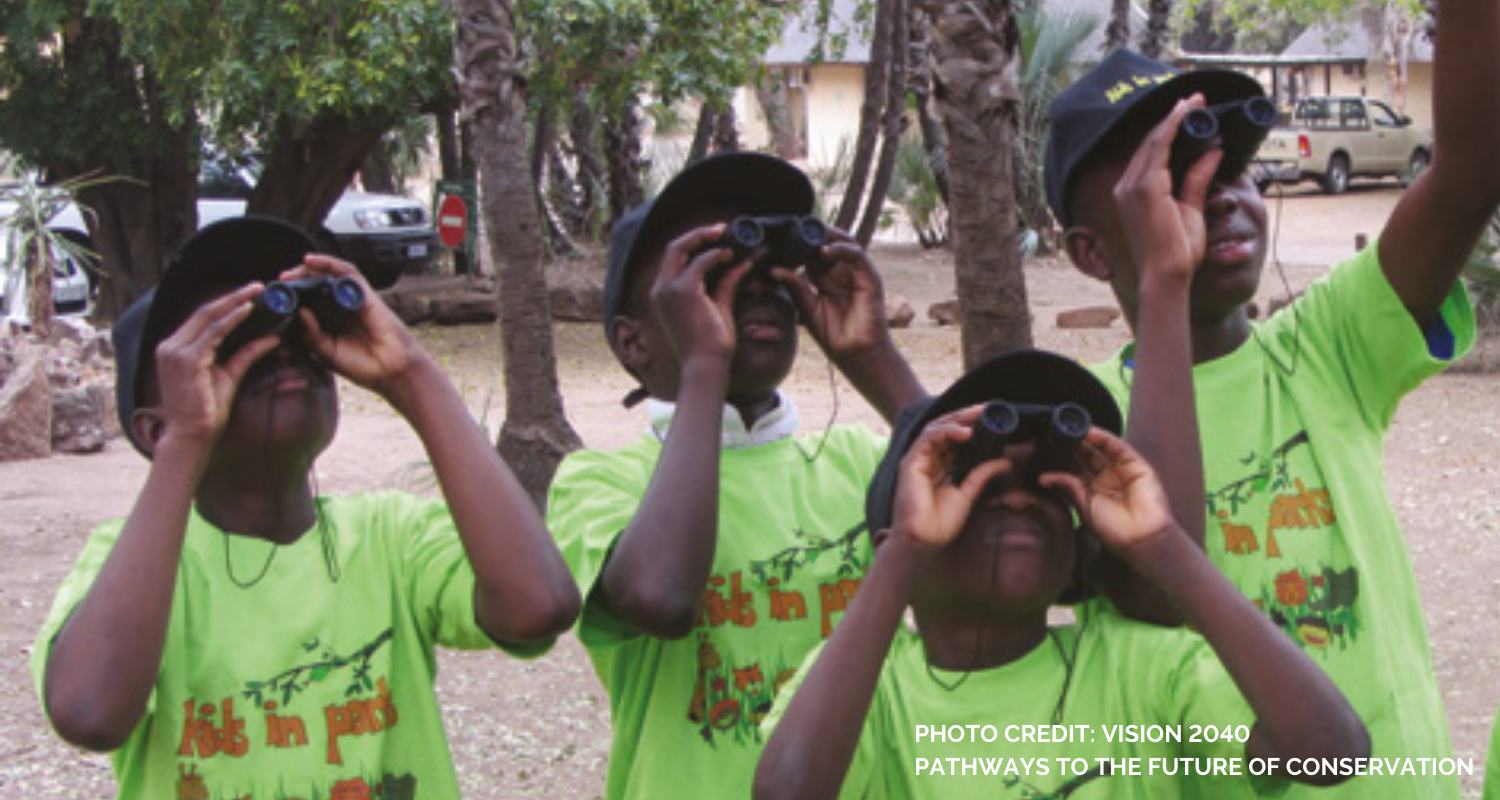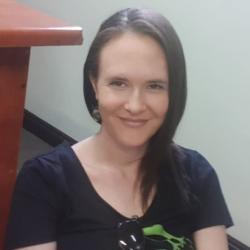
SANParks Vision 2040: A New Era for Conservation in South Africa
Reimagining Conservation: SANParks' Vision 2040
South African National Parks (SANParks) has unveiled its ambitious Vision 2040, a groundbreaking strategy to redefine conservation in South Africa. This forward-thinking plan recognises the need for a more inclusive and sustainable approach to managing the country's natural landscapes, prioritising biodiversity protection, meaningful community inclusion, and the development of wildlife economies. The plan is a product of comprehensive surveys with key stakeholders, such as South African citizens, traditional healers/leaders, researchers, producers/farmers, and communities, on their vision for the future of conservation.
Key Aspects of Vision 2040
- Inclusive Conservation: Moving beyond traditional fenced-off conservation areas to create multi-functional landscapes that benefit both wildlife and local communities.
- Community inclusion: Elevating Indigenous communities and local stakeholders' ownership, voices and roles in conservation decision-making and management.
- Sustainable Wildlife Economies: Developing enterprises that create economic opportunities and benefits for local communities while supporting conservation efforts.
- Climate Resilience: Implementing strategies to help ecosystems and communities adapt to the challenges posed by climate change.
Expert Insights
Dr Hayley Clements, a senior researcher with the African Wildlife Economy Institute (AWEI), participated in the Vision 2040 futuring workshop and shared her perspective:
"Vision 2040 is an important statement that conservation needs to be inclusive of all South Africans, acknowledging that it hasn't always been. It recognises that conservation doesn't only happen in fenced-off protected areas and that it shouldn't be at odds with development. When we recognise that people can sustainably use wildlife, conservation can happen across multi-functional landscapes that also sustain diverse livelihoods."
Moving Beyond Traditional Conservation Methods
Dr Wiseman Ndlovu, Programmes Manager for AWEI, explains the importance of moving away from traditional conservation methods:
"Traditional conservation methods, such as fenced-off areas, have played an important role in preserving biodiversity but have presented challenges of exclusion and limited participation from Indigenous communities, which Vision 2040 seeks to address. Moving beyond these methods allows for more dynamic ecosystems, better connectivity between habitats, and the inclusion of local communities in conservation efforts. This approach has the potential to promote landscape-level conservation, where wildlife can move freely across larger areas, adapting to changing climates and resource availability while coexisting with people who see value and benefit in conservation."
Green Corridors and Climate Resilience
Vision 2040 emphasises the creation of wildlife corridors, which are crucial for conservation and climate resilience. These corridors allow for:
- Species movement and adaptation to changing climates
- Genetic diversity maintenance
- Ecosystem connectivity
- Reduced human-wildlife conflict
Additionally, these corridors can provide socio-economic benefits to communities through sustainable wildlife economies, including ecotourism and other opportunities.
Achieving South Africa's 30x30 Commitment
Vision 2040 aligns closely with South Africa's commitment to the global 30x30 target, which aims to protect 30% of the planet's land and ocean by 2030. Dr Ndlovu believes that SANParks' approach will significantly contribute to this goal:
"SANParks' Vision 2040 aligns well with South Africa's commitment to the 30x30 target. By adopting innovative conservation approaches such as wildlife corridors, integrating local communities, and promoting sustainable wildlife economies, Vision 2040 seeks to expand protected areas while ensuring they are effectively managed and integrated with livelihoods. This will contribute to biodiversity conservation and support sustainable development, making the 30x30 target more achievable in a balanced and inclusive manner."
Launching the Vision 2040
AWEI Postgraduate Fellow Klarine Schutte attended the launch of Vision 2040 in Johannesburg on 26 September 2040.
“Attending the Vision 2040 reveal was an exceptional experience. SANParks CEO Hapiloe Sello, SANParks Board Chair Ms Pam Yako, and the Deputy Minister of the Department of Forestry, Fisheries, and the Environment (DFFE), Mr Narend Singh, delivered profound and inspiring talks. The event’s central themes of inclusivity and transformation focused on integrating emerging farmers into the wildlife economy and ensuring that national parks are not exclusive spaces for the wealthy, but rather engines of shared prosperity.
Hapiloe Sello spoke passionately about SANParks' commitment to making conservation work for the people. She emphasised how national parks can contribute to sustainable development by creating jobs and alleviating poverty, particularly in rural areas. Ms Pam Yako built on this, advocating for equitable access to resources and opportunities within the wildlife economy. Mr Narend Singh echoed these sentiments, further highlighting the critical role of SANParks in achieving the goals of inclusivity and economic empowerment.”
The message was loud and clear: Vision 2040 aims to transform how national parks interact with local communities, ensuring that conservation efforts benefit everyone. This vision of a more inclusive wildlife economy aligns with Klarine’s research, which focuses on game loan and donation programmes and how these initiatives can contribute to broader economic inclusion and community upliftment.
“Reflecting on the event, I realise how closely my research aligns with the transformation agenda outlined by Vision 2040. The talks reaffirmed the importance of my work and its potential to contribute meaningfully to the future of South Africa’s wildlife economy.”
How does SANParks' Vision 2040 contribute to developing functional and inclusive wildlife economies in South Africa?
SANParks' Vision 2040 outlines a strategic framework to enhance South Africa's conservation efforts while promoting a functional and inclusive wildlife economy. Here's how:
- Community Empowerment and inclusion: The vision strongly emphasises local communities, advocating for inclusive growth and participation in conservation-related economic activities. It recognises that community-based conservation projects and partnerships are essential for a successful wildlife economy.
- Sustainable Tourism and Job Creation: SANParks aims to generate sustainable jobs and income streams for local populations by promoting nature-based tourism and other eco-friendly initiatives. Vision 2040 highlights the need to develop infrastructure, create opportunities, and foster entrepreneurship, ensuring that communities benefit directly from conservation activities.
- Biodiversity as an Asset: Vision 2040 recognises South Africa’s biodiversity as a key economic asset. It promotes sustainable utilisation of wildlife resources, focusing on creating businesses around wildlife products, services, and experiences. This ensures that wildlife is viewed as a conservation priority and a foundation for economic activity.
- Inclusive Policy and Stakeholder Engagement: The vision stresses the importance of collaborative governance involving all stakeholders, from government to private sectors, rural communities, and conservation agencies. This multi-stakeholder approach helps build a balanced, inclusive wildlife economy that benefits all sectors of society.
- Innovative Conservation Financing: SANParks plans to explore innovative financial models that promote conservation while creating revenue streams, such as payment for ecosystem services and wildlife ranching. These models can provide economic incentives for both private landowners and communities to participate in conservation.
- Capacity Building and Education: Vision 2040 also emphasises the need for capacity building, training, and education to empower people to engage in the wildlife economy. This includes providing the technical skills and knowledge needed to participate in conservation and wildlife-based enterprises.
Overall, SANParks' Vision 2040 aligns conservation goals with socioeconomic development, promoting an inclusive wildlife economy that integrates community empowerment, sustainable business models, and biodiversity protection.
Conclusion
SANParks' Vision 2040 represents a paradigm shift in conservation thinking, recognising that the future of South Africa's natural heritage lies in the hands of its people. This visionary plan sets the stage for a more inclusive, sustainable, and resilient approach to biodiversity protection by fostering collaboration between conservation authorities, local communities, and other stakeholders. For this vision to be realised, SANParks can provide guidance and lead by example, but all South Africans must step forward and play their part in protecting our natural heritage and the resources we depend on.
As South Africa implements this ambitious vision, it will be crucial to monitor progress, adapt strategies as needed, and ensure that the benefits of conservation are equitably shared among all South Africans and collaboration between various stakeholders such as universities, colleges, management authorities, civil organisations, community-based organisations, traditional leaders and communities. Vision 2040 not only aims to protect the country's incredible biodiversity but also to create a model for sustainable development that could inspire similar initiatives around the world.
Read the Vision 2040 Pathways to the Future of Conservation here.
We support the free flow of information. Please share:
More content
-

What Foot and Mouth Disease-free means for South Africa’s game meat trade
Ms Lydia Daring Bhebe…Explore the latest developments in South African provinces achieving and maintaining Foot and Mouth Disease (FMD) free status…
Articles -

The world wildlife trade regulator is 50 – here’s what has worked and what needs to change
Daniel Challender…Most countries implement Cites, the Convention on International Trade in Endangered Species of Wild Fauna and Flora as…Articles -

Enabling Sustainable Wildlife Trade
Prof Francis VorhiesEnabling sustainable wildlife trade is a key policy measure for growing Africa's wildlife economy. In this respect, CITES…
Articles -

Has CITES become too complicated to be effective?
Prof Francis VorhiesGovernments agreed to the text of CITES in the 1970s, which is quite straightforward. However, the agreement’s implementation…
Articles -

From poachers to providers: Can Africa's wild meat market save wildlife?
Dr Wiseman NdlovuHave you ever considered how wild meat could be more than just a cultural staple but also a…
Articles -

As a fellow of the African Wildlife Economy Institute (AWEI), I am excited to attend the upcoming 3rd…
Articles -

A theory of change to improve conservation outcomes through CITES
Dr Michael 't Sas-Rolfes…Here we articulate the implied theory of change (ToC) underpinning the design and operation of CITES (Convention on...
2025Research -

Wild Meat Value Chain Integration Systems: Opportunities for Value Chain Formalisation and Scaling in Africa
Dr Wiseman Ndlovu…Establishing a legal, safe and sustainable wild meat sector promises to potentially reduce demand for illegally sourced meat...
2025Research -

AWEI's 2024 Wildlife Economy Dialogue Series
Ms Emily TaylorRediscover 2024: A year of insight and inspiration
In 2024, AWEI proudly hosted three ground-breaking dialogue series in…
Articles
Get updates by email
Through impactful research, stakeholder engagement, and professional development, AWEI is supporting the wildlife economy across Africa. Please subscribe for occasional updates on our work and forthcoming events.
Sign up for a quarterly dose of AWEI insights
In a complex and changing world, AWEI generates strategic ideas, conducts independent analysis on wildlife economies, and collaborates with global scholar-practitioners to provide training and expertise for biodiversity conservation, climate resilience, and inclusive economic opportunities in Africa.

